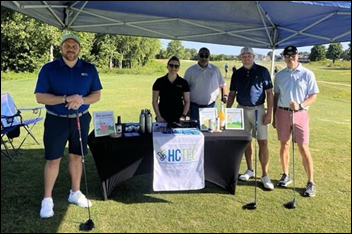Monday Morning Update 7/22/24
Top News

Commure will acquire ambient medical documentation system vendor Augmedix in an all-cash, take-private transaction that values the company at $139 million.
AUGX shares had lost 80% of their value in the past 12 months prior to the announcement. The company’s market capitalization peaked at $290 million in early December 2023 and is down 62% since. The deal represents a significant share price premium and a four-quarter revenue multiple of 2.8.
Athelas acquired Commure in October 2023, claiming a total company valuation of $6 billion. It offers tools for revenue cycle management, workflow, and patient monitoring. Commure launched its free, AI-powered Ambient Scribe just a few weeks ago.
Reader Comments
From Observer: “Re: Intermountain. Craig Richardville out as CIO. Confirmed by internal memo.” His LinkedIn profile is unchanged, but his bio has been removed from the health system’s leadership webpage. He joined Intermountain Health as chief digital and information officer in April 22 after spending three years in a similar position with SCL Health, which was acquired by Intermountain in April 2022. Intermountain announced in September 2023 that it would replace Oracle Cerner with Epic.
HIStalk Announcements and Requests

More than half of poll respondents reported that they experienced no major issues in their most recent PCP visit, although those who did most often named lack of appointment availability and PCP distractions.
New poll to your right or here: Were you significantly affected by CrowdStrike-caused downtime? You probably were on Friday if you interacted with airlines, public transit, banks, mail carriers, and government offices. Bonus question to which you may comment below – as in the Change Healthcare ransomware attack, how do you keep a single vendor’s technical issues from crippling a specific industry or the country in general?
Dear researchers and/or Epic: please do a Cosmos analysis of the patient effects of the CrowdStrike downtime to prove or disprove the hospital executive insistence that patient care doesn’t suffer when the EHR goes down for days.
- How long were systems unavailable as determined by deviation from normal usage?
- Were more patients discharged or transferred than usual?
- Was visit and admission volume higher afterward as patients sought care that was deferred during the event?
- Were ED visits reduced or of shorter duration?
- How many surgeries were cancelled and of what kinds?
- After the event is resolved, how were patient complications and mortality impacted during and immediately after?
- How were the schedules of clinical staff affected?
- How were patient satisfaction scores affected?
Webinars
None scheduled soon. Previous webinars are on our YouTube channel. Contact Lorre to present or promote your own.
Acquisitions, Funding, Business, and Stock

For-profit hospital operator Ardent Health – which owns 30 hospitals, 200 care sites, and 1,700 providers across six states – goes public at a valuation of over $2 billion. Notes:
- Shares closed on their first day of trading 6% off the IPO price, which had already been lowered.
- They have since rebounded and are up 8% from the IPO price of $16.
- Previous owner Equity Group Investments offered 12 million shares and retained 55% voting power.
- PureHealth, which operates hospitals and other healthcare businesses in the United Arab Emirates, is the second-largest shareholder.
- Ardent EVP/General Counsel Stephen Petrovich is the largest individual shareholder with $18 million worth.
- According to the prospectus, Ardent’s implementation of Epic in 2021 “makes us a more attractive partner for emerging technology providers and facilitates physician use of novel technology.”
People

The American Academy of Nursing names Suzanne Bakken, PhD, RN as one of five “Living Legends” of nurse leadership. She is professor of nursing and biomedical informatics at Columbia University.
Announcements and Implementations

Hospitals everywhere experienced computer downtime starting Friday as a result of the CrowdStrike cybersecurity update flaw that triggered the Windows “blue screen of death.” The company has issued a fix for users of the endpoint protection system, but experts say it may take days to fix all affected systems. A Microsoft executive called the incident “the largest IT outage in history,” although Microsoft said the incident affected 8.5 million devices, less than 1% of all Windows machines. Some of the hospitals that reported outage-related patient care issues:
- Mass General Brigham cancelled non-urgent surgeries, procedures, and visits.
- Penn Medicine warned that it might need to reschedule appointments.
- Cincinnati Children’s Hospital cancelled appointments and warned of delays.
- Michigan Medicine reported a major incident.
- Mount Sinai Hospital and Hospital for Special Surgery lost access to affected systems.
- Baylor Scott & White reported outages.
- RWJBarnabas Health delayed procedures, as did Emory Healthcare and Norton Healthcare.
- UVA Health closed its ambulatory clinics and outpatient radiology services.
- Computers and phones at Greater Baltimore Medical Center went down.
- University of Miami’s UHealth lost access to its systems and went back to paper.
- Quest Diagnostics cancelled appointments and advised providers who send specimens via Fedex to hold them until that company returns to normal operations.
- A hospital employee claimed in a now-deleted Reddit post that the bug had taken down tens of thousands of hospital endpoints, adding with regard to affected machines in surgery, “We cannot reboot them without killing patients.”
- 911 services in several states were taken offline.
- EMIS, the system used by 60% of England’s GPs, went down.

Industry long-timer Drex DeFord, who worked several years as a healthcare executive for CrowdStrike until January 2024, posted this admirably succinct description of the CrowdStrike issue, including a new warning:
Here’s what I think I know so far: Everybody runs CrowdStrike (if you don’t, lots of your partners do). Most customers have endpoint sensors set to auto-update. Bad-sensor update jammed up Windows machines. New/improved update now deployed. But customers often have to reboot machine to fix problem. Some have to boot to “safe-mode” and remove offending file. Reports now that some adversaries posing as “CrowdStrike Support” are reaching out to customers offering help — stay a little paranoid about who you are communicating with.
Government and Politics
HHS creates new positions for CTO, chief artificial intelligence officer, and chief data officer.
Privacy and Security

Oracle will pay $115 million to a lawsuit that charged the company with violating website user privacy by tracking their browsing activity and compiling it into a profile that it sold via its Oracle Data Marketplace, which the company says is the world’s largest third-party data marketplace, with “actionable audience data” covering 80% of the US internet population.
Other

Academic publisher Taylor & Francis – a leading scholarly publisher that is owned by HIMSS conference owner Informa and whose brands include several healthcare journals — surprises its journal authors by selling access to their articles to Microsoft to use for AI training. Experts urge authors to ask publishers about their AI policies before signing contracts.
Sponsor Updates
- Nordic releases a new “Designing for Health” podcast, “Interview with Mitesh Patel, MD.”
- Rhapsody Health publishes a new white paper, “9 questions to ask to create a winning interoperability strategy.”
Blog Posts
- How Does EMR Software Improve the Patient Experience? (Netsmart)
- Navigating Organizational Challenges in Long-Term Data Governance (Optimum Healthcare IT)
- The Ultimate Guide to Effective Radiology Scheduling (QGenda)
- Best Practices for Charting Your Epic Optimization Journey (CereCore)
- Top 5 Challenges Shaping the Future of Healthcare Data Management for Payers (Symplr)
- Your Guide to Improving Payer-Provider Collaboration (Tegria)
- How to Find and Successfully Apply for Hospital Grants in a Rural Community (TruBridge)
Contacts
Mr. H, Lorre, Jenn, Dr. Jayne.
Get HIStalk updates.
Send news or rumors.
Contact us.









































































































































Today's post contains the phoenixes rising from the ashes of the post COVID telehealth era. There's two things that destroy…